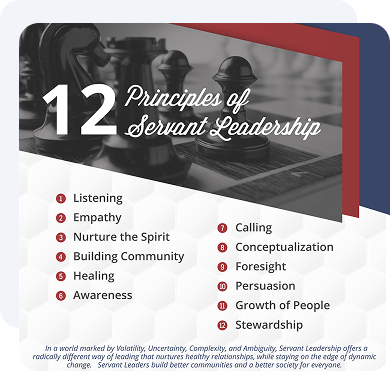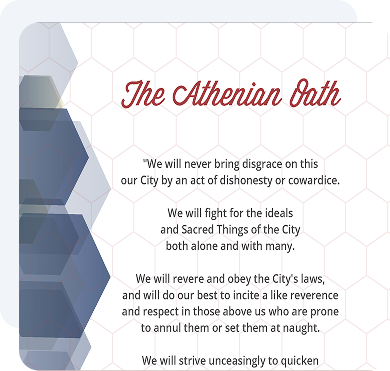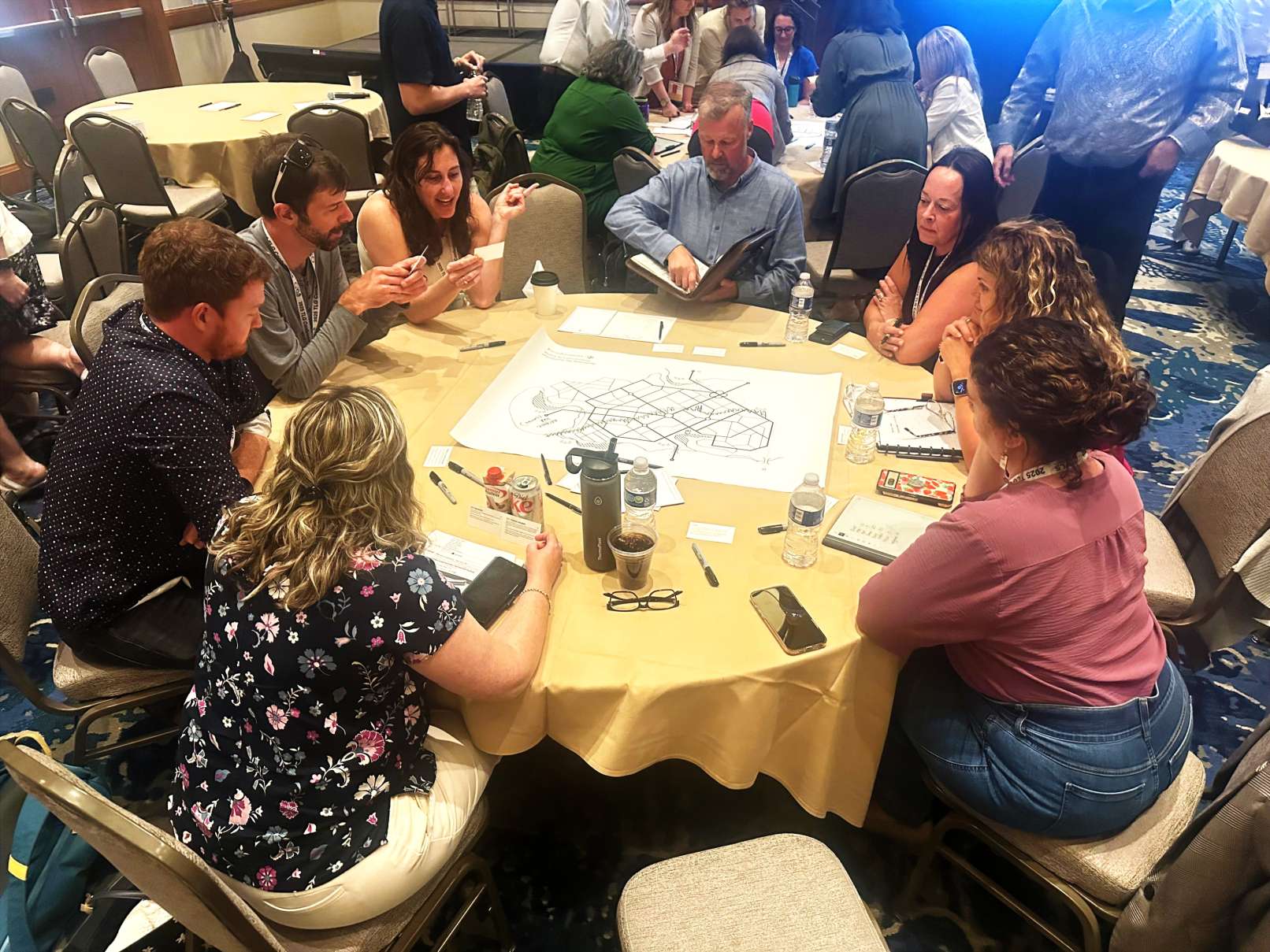What is Servant Leadership?
Since the writing of this essay, the term and concept has gained more and more acceptance throughout the world as a very unique form of leadership. There are many definitions of servant leader, but perhaps the most basic definition is that a servant leader is someone who puts the needs of others ahead of their own. Greenleaf said that while there was no one test to see if someone was a servant leader, the best test was to look at the followers. Are the followers becoming healthier, wiser, freer, more autonomous and more likely themselves to become a servant leader? If so, then the leader can fairly be called a servant leader.
- We will never bring disgrace on this our City by an act of dishonesty or cowardice.
- We will fight for the ideals and Sacred Things of the City both alone and with many.
- We will revere and obey the City’s laws, and will do our best to incite a like reverence and respect in those above us who are prone to annul them or set them at naught.
- We will strive unceasingly to quicken the public’s sense of civic duty.
- Thus, in all these ways, we will transmit this City not only, not less, but greater and more beautiful than it was transmitted to us.

The 12 Principles
Greenleaf wrote about the principles of servant leadership much more so than trying to define servant leadership. He identified twelve principles that characterize servant leadership.
At SGR we teach that those principles can be roughly divided into two categories. On the one hand, about half of them fall into the category of “Nurturing Healthy Relationships.” On the other hand, about half of those principles fall in the category of “Leading Innovative Change for the Future.”
SGR's Thought Leadership
Your Gateway to News and Information about SGR.
 June 26, 2025
June 26, 2025
Embracing the Past... Building the Future
Founder Ron Holifield will stay engaged, involved, and active with SGR, but he's ready to turn over the daily operations to long-time City Manager and servant leader Darin Atteberry.

AFI Sponsorship Opportunities
Join AFI in Transforming Communities, Empowering Leaders.
We invite you to support the Alliance for Innovation (AFI) in supporting and encouraging innovative thinking in local government organizations! AFI provides members with tools and education designed to promote innovative thinking, creative problem-solving, information sharing, and a network amongst like-minded communities. For opportunities regarding involvement in this initiative, please click the link below.

The Athenian Oath
The original Oath of the Athenian City-State was required in ancient Athens to become a citizen. The exact text of the oath has a number of translations. A later version, the Ephebic Oath, was sworn by men upon entering their second year and final year of training at the military academy, in which graduation was required to attain citizenship. The oath states both military and civil responsibility to one’s city.


